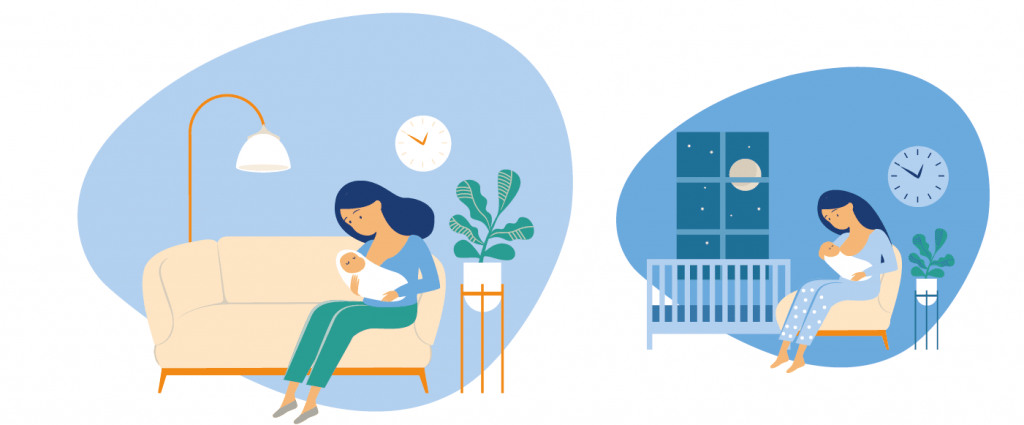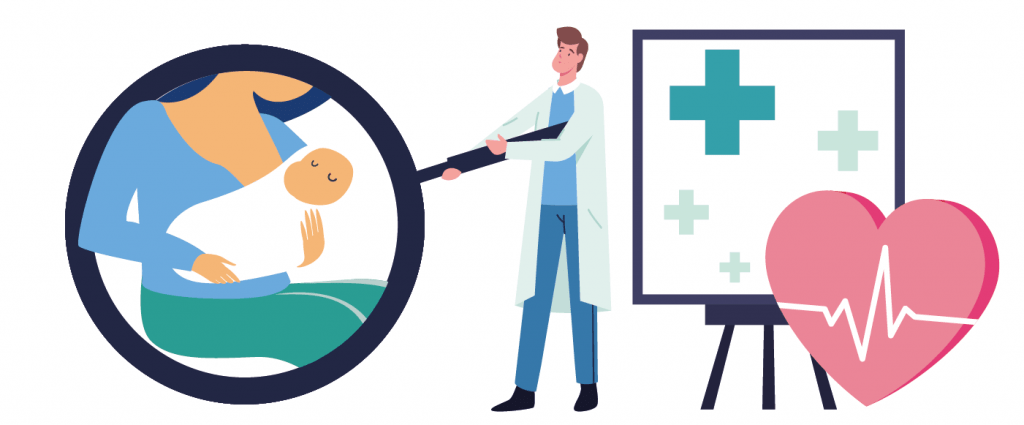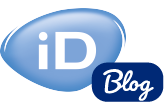Is breastfeeding okay with a UTI?
UTIs (or urinary tract infections) can be a real pain, especially if they keep coming back, but how do they impact breastfeeding? As a breastfeeding parent, you’ll naturally be concerned about anything that might impact your baby’s health. We’ve gathered all the information on breastfeeding and UTIs.

What is a UTI?
A urinary tract infection is an infection that affects your urinary tract, including your bladder, urethra and kidneys.1 They are fairly common, with 50-60% of women experiencing one within their lifetime.2 Some symptoms to watch out for are: a strong need to go for a wee; a burning sensation while urinating; cloudy pee; and strong-smelling wee.3 If you have any concerns about your symptoms, this is the first time you’ve had a UTI, your child has a UTI or your symptoms get worse or don’t go away after two days, iD would recommend you speak to a doctor.4

Can you breastfeed when you have a UTI?
Urinary tract infections are common in pregnancy5 and after birth, happening in 2-4% of all deliveries6. They are often caused by a catheter, which can introduce bacteria into the bladder.7
Birth can also cause other urinary issues, suchas urinary incontinence8. If you’re experiencing bladder issues, try iD’s range of pads and pants, specially designed for the female anatomy.
Effects of UTIs on breastfeeding parents
UTIs, while a nuisance, have relatively few effects on breastfeeding parents. However, as with any illness, getting a urinary tract infection can impact your milk supply.9 Plus, if you need antibiotics to treat your infection, you may find that it affects your digestion. To counter this, take a probiotic to keep your gut flora happy.10
Treating a UTI while breastfeeding
Most of the time, UTIs can be treated at home with paracetamol, fluids11and natural remedies, such as cranberry juice. While there are no controlled studies, it’d appear that it’s safe while breastfeeding to use over-the-counter (sodium nitrate) sachets and cranberry juice to manage your symptoms.12 Moreover, without antibiotics, most cases will clear up within four to nine days.13
However, if your doctor does prescribe antibiotics, there are some things to bear in mind. Most antibiotics used to treat UTIs are safe to take while breastfeeding14, but you need to let your doctor know if you’re nursing so they can choose the right medication15. There are some minor risks to taking antibiotics when breastfeeding, so always talk over your concerns with a healthcare provider. These include:
- a very minimal chance that the baby can experience digestive issues or oral thrush.16 If this happens, talk to your doctor about giving your child a probiotic17
- exposure to antibiotics can be dangerous if your baby is premature or a newborn, so let your healthcare provider know if this is the case18

Effects of breastfeeding on your child’s bladder
As we all know, breastfeeding has many health benefits for your baby, including a lower chance of developing infections and obesity.19 There’s also some evidence that breastfeeding for at least seven months decreases your child’s chances of getting a urinary tract infection themselves.20
Furthermore, if you breastfeed while you have a UTI, you’ll actually pass on antibodies to your baby21 that help prevent them from getting similar infections.
Preventing a UTI while breastfeeding
After birth and while breastfeeding, you can take these steps to avoid getting a UTI:
- make sure you drink plenty of fluids
- walk around as much as you can as soon as you can after birth22
- maintain good personal hygiene, including changing sanitary towels and tampons regularly
- eat plenty of Vitamin C rich foods
- avoid using scented products around your genitals
- wear loose clothing on your bottom half
- wee as soon as possible after sexual intercourse23
Are you a new parent looking for the perfect nappies for your baby? Check out the Baby & Junior range on iD Direct for comfortable and secure nappies and pants.

Sources
1 “Urinary tract infections (UTIs)”, NHS, 18 November 2020, Source: https://www.nhs.uk/conditions/urinary-tract-infections-utis/
2 “Recurrent Urinary Tract Infections Management in Women”, Ahmed Al-Badr and Ghadeer Al-Shaikh, 25 June 2013, Source: https://www.ncbi.nlm.nih.gov/pmc/articles/PMC3749018/
3 “Urinary tract infection (UTI)”, Mayo Clinic Staff, n.d., Source: https://www.mayoclinic.org/diseases-conditions/urinary-tract-infection/symptoms-causes/syc-20353447
4 “Urinary tract infections (UTIs)”, NHS, 18 November 2020, Source: https://www.nhs.uk/conditions/urinary-tract-infections-utis/
5 “UTIs During Pregnancy”, Hansa D. Bhargava, 14 September 2020, Source: https://www.webmd.com/women/guide/pregnancy-urinary-tract-infection
6 “Postpartum urinary tract infection by mode of delivery: a Danish nationwide cohort study”, Tina Djernis Gundersen, Lone Krebs, Ellen Christine Leth Loekkegaard, Steen Christian Rasmussen, Julie Glavind and Tine Dalsgaard Clausen, 14 March 2018, Source: https://www.ncbi.nlm.nih.gov/pmc/articles/PMC5857667/
7 “Postpartum Urinary Tract Infections (UTI)”, Marygrace Taylor, 8 June 2021, Source: https://www.whattoexpect.com/first-year/postpartum-health-and-care/bladder-urination-difficulties-postpartum/
8 “10 truths: leaking urine in pregnancy and after birth”, NCT, n.d., Source: https://www.nct.org.uk/life-parent/your-body-after-birth/10-truths-leaking-urine-pregnancy-and-after-birth
9 “4 factors that can decrease breast milk supply – and how to replenish it”, Shivani Patel, 21 August 2018, Source: https://utswmed.org/medblog/decrease-breast-milk-supply/
10 “Breastfeeding and Antibiotics: What You Need to Know”, Wendy Wisner, 17 June 2020, Source: https://www.healthline.com/health/breastfeeding/breastfeeding-and-antibiotics
11 “Urinary tract infections in adults”, NHS, 12 December 2017, Source: https://www.nhs.uk/conditions/urinary-tract-infection-adults/pages/introduction.aspx/amp/
12 “Cystitis in the Breastfeeding Mother”, Dr Wendy Jones, September 2019, Source: https://www.breastfeedingnetwork.org.uk/cystitis/
13 Ibid
14 Ibid
15 “Breastfeeding and Antibiotics: What You Need to Know”, Wendy Wisner, 17 June 2020, Source: https://www.healthline.com/health/breastfeeding/breastfeeding-and-antibiotics
16 “Safety in Lactation: Urinary-tract infections”, Sarah Fenner, 21 October 2020, Source: https://www.sps.nhs.uk/articles/safety-in-lactation-urinary-tract-infections/
17 “Breastfeeding and Antibiotics: What You Need to Know”, Wendy Wisner, 17 June 2020, Source: https://www.healthline.com/health/breastfeeding/breastfeeding-and-antibiotics
18 Ibid
19 “Benefits of breastfeeding”, NHS, 11 March 2020, Source: https://www.nhs.uk/conditions/baby/breastfeeding-and-bottle-feeding/breastfeeding/benefits/
20 “Protective effect of breastfeeding against urinary tract infection”, S Mårild, S Hansson, U Jodal, A Odén and K Svedberg, February 2004, Source: https://pubmed.ncbi.nlm.nih.gov/15046267/
21 “Is it safe to breastfeed when I have an infection?”, Laura R. Viehmann, n.d., Source: https://www.babycenter.com/baby/breastfeeding/is-it-safe-to-breastfeed-when-i-have-an-infection_10370326
22 “Postpartum Urinary Tract Infections (UTI)”, Marygrace Taylor, 8 June 2021, Source: https://www.whattoexpect.com/first-year/postpartum-health-and-care/bladder-urination-difficulties-postpartum/
23 “Postpartum UTI — causes, symptoms, treatment and prevention”, Dr Anitha Anchan, 30 June 2017, Source: https://www.thehealthsite.com/pregnancy/postpartum-uti-causes-symptoms-treatment-and-prevention-333948/
